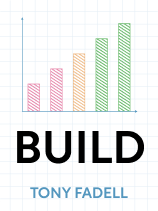

This article is an excerpt from the Shortform book guide to "Build" by Tony Fadell. Shortform has the world's best summaries and analyses of books you should be reading.
Like this article? Sign up for a free trial here.
Who understands what the customer wants? Who can help you mitigate business risks? Who holds the CEO accountable?
Entrepreneur Tony Fadell shares his tips for creating a successful product-based business and building a great team. He contends that there are four components of an effective team, and they might not be what you think.
Continue reading to learn Fadell’s surprising yet sensible advice.
The 4 Components of an Effective Team
Fadell explains that there are four components of an effective team: great product managers, the right salespeople, a good lawyer, and an amazing board. Let’s take a look at each component.
#1: Great Product Managers
A great product manager understands what the customer wants, communicates those desires to the team building the product, and later translates them into a marketing message to share with potential customers. For example, one female Nest product manager helped the team building a security alarm realize that mothers wanted reassurance when they were home with their kids. In response, the team built in a feature that allowed customers to open doors from inside without triggering the alarm but kept the system active so that it would alert you to intruders. This feature helped Nest tell its female customers why they should buy the product.
| Other Characteristics of Good Product Managers In Inspired, Marty Cagan agrees that a product manager must understand the customer’s desires and help the product-building team build features that meet those desires. However, he argues that the product manager should communicate what the product does to the marketer rather than create the marketing message herself. Whatever role the product manager fills in your company, pay attention to how well they meet your customer profile. At Nest, a female product manager noticed female customers’ concerns; often, men are unreceptive to women’s concerns because they don’t have personal experience with the issues women face, as Caroline Criado-Perez points out in Invisible Women. This may be an issue with product managers, who are mostly men. |
#2: The Right Salespeople
Fadell suggests that you find salespeople willing to work outside of the traditional commission model. If your salespeople’s salaries depend only on whether the customer buys the product, they’re incentivized to sell at all costs. As such, they may treat the customer poorly—perhaps by misleading them about product features. Instead, implement a vested commission strategy. Incentivize the salespeople to treat potential customers well by giving them part of the commission when they sell, and the full commission the longer the customer stays with the company.
(Shortform note: Other experts suggest that salespeople are incentivized to sell at all costs and mislead potential customers about products if they’re operating on an exclusively commission-based model. If you or the salespeople you want to hire are skeptical of a vested commission strategy (perhaps because they’re worried that the customers will leave due to unforeseeable reasons), try offering your salespeople a base salary plus commission: Having that base salary as a cushion will make salespeople less likely to resort to misleading sales tactics, but the commission structure will still encourage them to sell.)
#3: A Good Lawyer
To run any business, you must make legal decisions. At some point, it will be more cost-effective to hire your own lawyers instead of continuously outsourcing legal issues. Fadell recommends hiring a lawyer familiar with your business’s core competencies. A generalist won’t be able to advise you effectively without hiring other specialist lawyers and will also lack the legal expertise to advise those specialists effectively. So you’ll spend more money to get worse advice.
(Shortform note: Another route you can follow when building a legal team is to hire a startup lawyer—someone who’s experienced in the legal ins and outs of funding and starting a company. These lawyers can help you find the legal specialists you need; just read your agreement carefully to ensure that the startup lawyer doesn’t make an unreasonable amount of money from doing so.)
Fadell also cautions against blindly following your lawyer’s advice. Success often requires taking risks. A good lawyer will inform you of the potential legal consequences of those risks; a great one will help you find a better workaround to accomplish your goals. But ultimately, only you can decide what’s worth the risk. (Shortform note: Other experts note another sign of a great (and not just good) startup lawyer: They’ll connect you to a wide range of experts—both in and outside the legal fields—who can help your business.)
(Shortform note: It’s not just business success that requires risk-taking. In Who Will Cry When You Die?, Robin Sharma argues that living a full personal life also requires taking risks. But many of us are risk-averse, no matter how well our mentors (or lawyers) advise us. If you want to be less fearful of taking risks, try practicing with low-risk and low-pressure decisions. For instance, take the risk of purchasing a new toothpaste brand. From there, you can slowly build up to taking bigger risks.)
#4: An Amazing Board
Fadell writes that, once you’re CEO, you’ll also need to create a good board: These are the people you’ll turn to for advice and the ones who can fire you if you do poorly.
Creating a good board requires that you include four types of people: a master networker who can introduce you to people who can help your business; investors, ideally those who are compassionate about the grind of building a company and not exclusively focused on their potential returns; an operations person—someone who’s built a company before and whose brain you can pick; and finally, a chairperson—someone who facilitates the board meetings, addresses any bad blood between board members, and supports your vision with the board.
(Shortform note: Trillion Dollar Coach provides further advice on creating and managing boards from Bill Campbell, whom Fadell mentions in Build as a long-time mentor. In addition to having the specific expertise Fadell names, every board member should care deeply about the company and always be available and willing to get their hands dirty to help you do your job. If they don’t come prepared to meetings or contribute in any useful way, remember that you have the power to fire them; it’s not just the other way around.)

———End of Preview———
Like what you just read? Read the rest of the world's best book summary and analysis of Tony Fadell's "Build" at Shortform.
Here's what you'll find in our full Build summary:
- Entrepreneur Tony Fadell's memoir, from the iPhone to Nest
- Advice for succeeding in every stage of your career, from beginners to CEOs
- Tips for building a product-based business and a great team






